Q&A: The Brexit bill row and why it matters
- Published
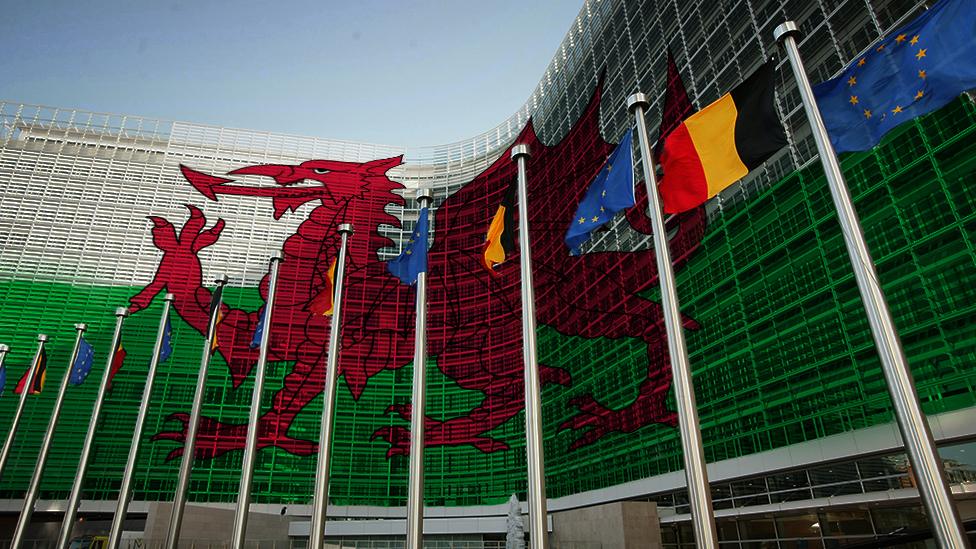
The assembly is subject to EU law - this will change after Brexit
The Welsh and Scottish governments are embroiled in an ongoing row with the UK government over how Brexit will work, accusing their counterparts in London of a "power grab".
They are proposing amendments to the EU Withdrawal Bill - a key part of Brexit legislation - in a bid to have more control over the powers that come back to the UK.
It is a complicated constitutional tussle, so you would be forgiven for asking...
What is this row about?
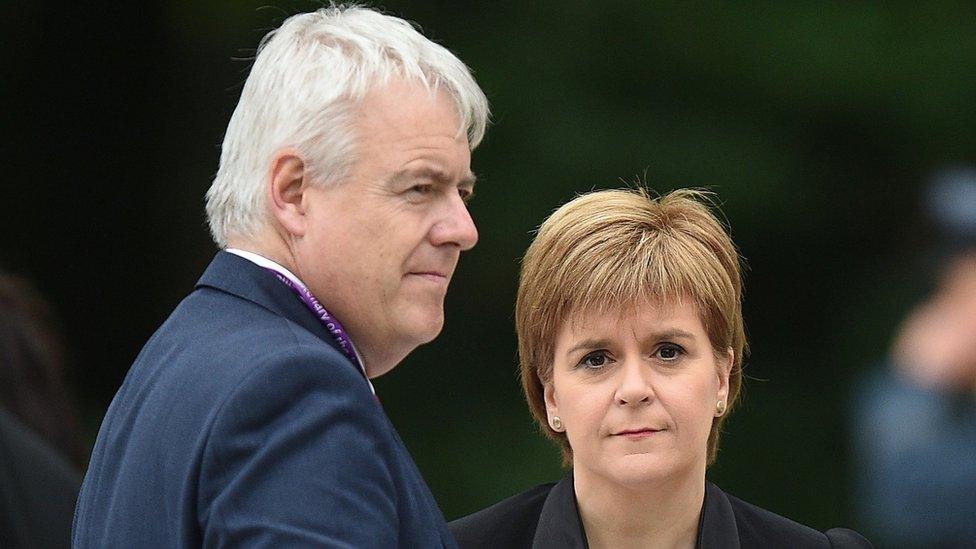
Carwyn Jones and Nicola Sturgeon are working together to oppose parts of the Brexit bill
This is all about the future of how the United Kingdom works.
It is about the nuts-and-bolts of devolution, and which set of politicians end up handling powers brought back from Brussels.
When the Scottish Parliament, and the Welsh and Northern Ireland assemblies were created, the UK government was not contemplating leaving the European Union.
The new institutions were created with powers over areas of policy, like agriculture, where the EU had already imposed rules that the new bodies were not able to change.
So while the assembly exercised control over agriculture in Wales, in reality the way that farmers get subsidies has always been set in Brussels.
Now that the UK is leaving the EU club, those powers that were wielded by Brussels are returning.
What is the alleged "power grab"?
As it stands, the EU Withdrawal Bill will put those powers in the hands of the UK government, which will in turn decide which bits the devolved institutions get to handle at a later date.
But ministers in Scotland and Wales want the devolved governments and parliaments to control the returning EU powers that sit in devolved areas without delay.
That is why they have accused the UK government of a "power grab".
Welsh and Scottish ministers accept there will need to be frameworks on how the laws work between different parts of the UK.
But they say this should be a matter for negotiation, not something imposed by politicians in London.
There are also concerns that the the bill would allow UK ministers to change Welsh law.
Why does any of this matter?

Should agriculture be governed from Cardiff, London, or both?
Because it will decide which politicians have power over what.
You may have strong views about whether Welsh politicians sitting in Cardiff should have full control over agricultural policy.
Or you may think it would be better if the UK government had an element of control - or complete control - over that.
Take subsidies for farming: should they be decided in London, or Cardiff, or maybe even in both places?
It is also important because the EU Withdrawal Bill is a key part of the UK government's Brexit strategy - on a basic level, it will govern how Brexit will work.
If Welsh and Scottish ministers do not agree with it, they could tell or urge members of the assembly in Cardiff and the parliament in Edinburgh to vote against the bill. As things stand, neither is planning to give their consent.
That will not be enough to stop the bill, but it will cause a major political headache for a UK government that may be reluctant to force it through without consent from Wales and Scotland.
It will not stop Brexit, but it could cause some difficulty.
What are the Welsh and Scottish governments trying to do?
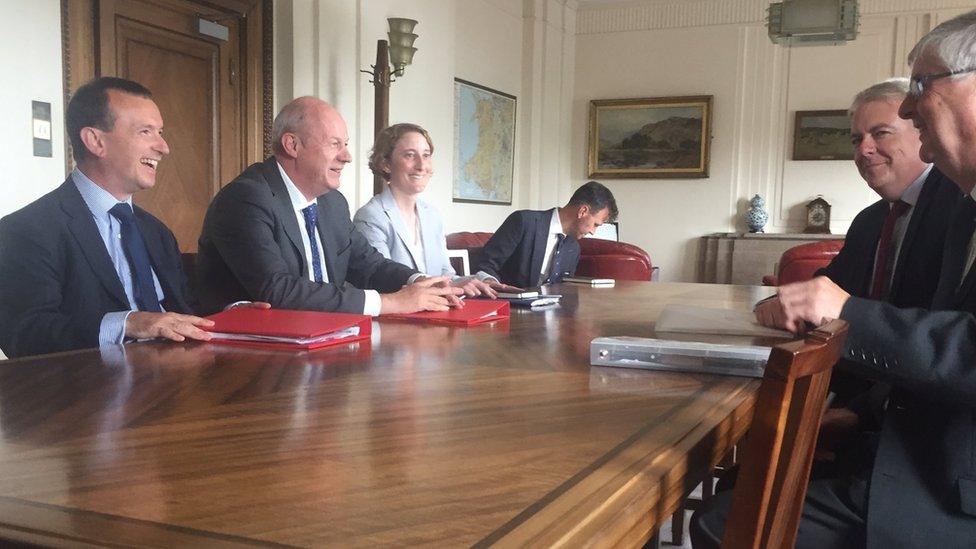
There have been talks between the UK and Welsh governments over the bill
Ministers in Edinburgh and Cardiff have joined forces to draw up changes to the EU Withdrawal Bill which were tabled in Parliament for a vote on Monday.
They would tear up the bit of the bill which restricts the powers of Welsh and Scottish ministers to touch what will become known as "retained EU law".
The amendment, if passed, would in effect hand all of the powers that currently sit in Brussels in devolved areas to the Scottish Parliament and Welsh Assembly.
It would also prevent UK ministers from unilaterally changing the laws that govern the assembly and the Scottish Parliament.
Why won't the UK government just hand power to the devolved institutions?
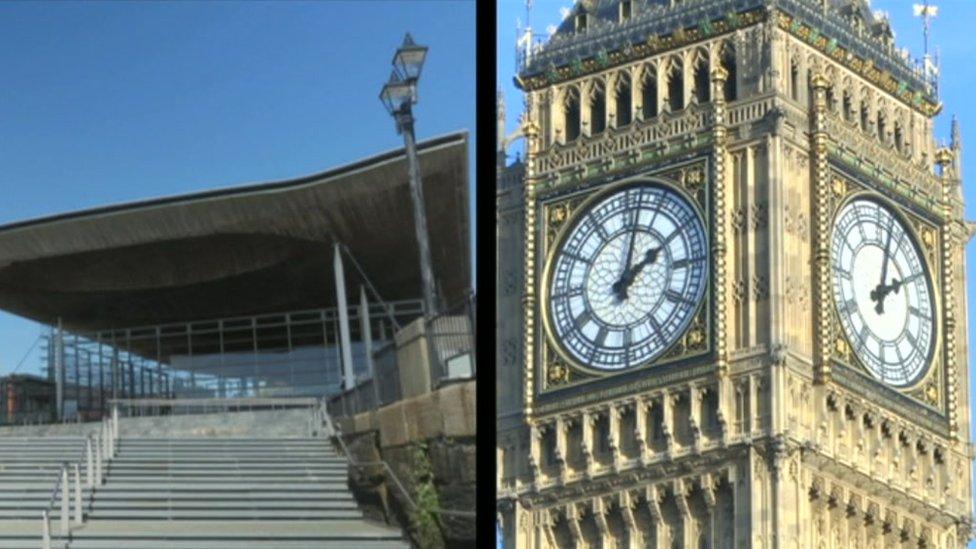
Because it thinks it would be better to hold all the cards while it decides which policies would work best on a UK-wide basis and which should be handed to the individual nations.
It wants to avoid a situation where the different parts of the UK diverge more than they already do in how they apply laws.
Having said that, the UK government has itself been holding negotiations with the Welsh and Scottish governments to resolve the impasse.
First Minister Carwyn Jones says he has been encouraged to hear that UK ministers have conceded they will have to make changes to legislation - but he still has not agreed to back the bill.
What happens next?
The UK government expects the bill to pass both parts of the UK parliament in 2018.
There will be votes in the Welsh Assembly and the Scottish Parliament on whether they give their consent to the bill.
The date of Brexit itself has been set for 29 March 2019.
- Published4 December 2017
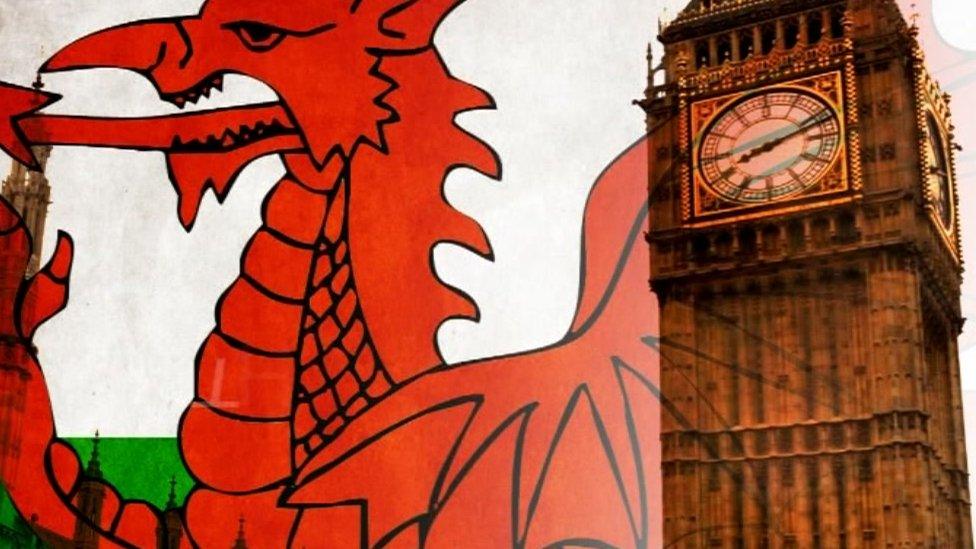
- Published30 November 2017

- Published19 September 2017
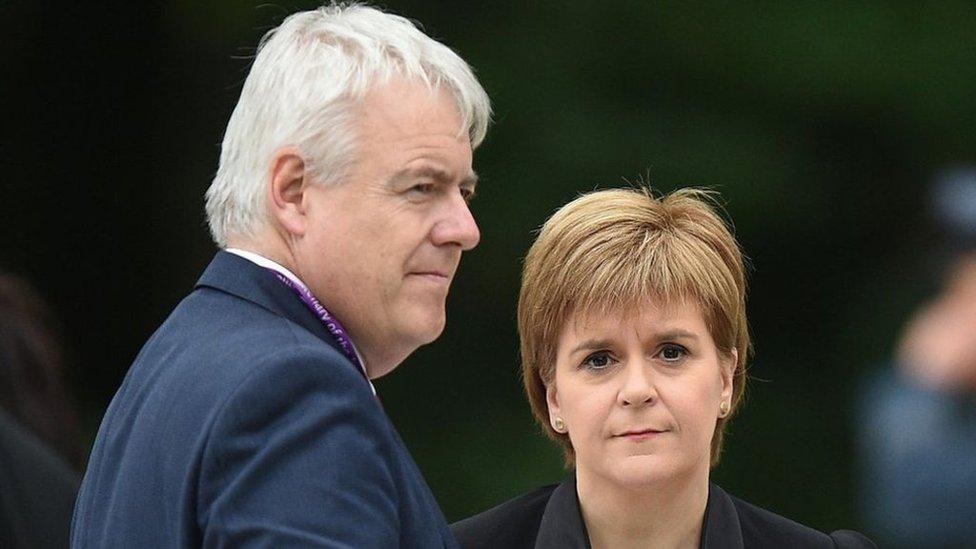
- Published29 November 2017
